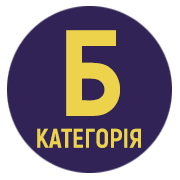HISTORICAL AND GENETIC GENERALISATION OF IDEAS OF FORMATION OF VALUES ATTITUDE TO NATIONAL HEROES
Abstract
The article examines the historical-genetic generalization of ideas regarding the formation of a valuebased attitude toward heroes throughout historical periods as a crucial factor in personal upbringing, the preservation of historical memory, and the development of civic consciousness. The article highlights, analyzes, and describes key phases of heroization—from ancient times to the present. It traces the paradigm shift in the portrayal of attitudes toward heroic figures. The study identifies the fundamental characteristics of heroic images in different epochs, including martial valor, moral ideals, political leadership, and social mission, which enable the formation of a holistic picture of reality. The history of the formation of the heroic ideal consists of seven key stages, each reflecting changes in the socio-economic, political, and cultural conditions of society. These stages transition from sacred and mythical figures in primitive communities, through epic works of antiquity and medieval chivalric ideals, to the national-liberation approach of the Renaissance and Romanticism, as well as the manipulative heroization under totalitarian ideology. The modern stage is characterized by the demythologization of traditional images and the expansion of the concept of heroism, which now includes not only military and political figures but also representatives of science, culture, and the volunteer movement. The heroic discourse remains a vital element of societal self-identification and the consolidation of the community around key moral and ideological values. The article demonstrates how the evolution of the hero’s image reflects the ongoing transformations of society and its need for symbols capable of inspiring and uniting people regardless of historical period, as well as how this influences the formation of a valuebased attitude toward these heroes.
References
Голобородько О. (2024). Героїзація як феномен сучасної медіакультури. Вісник Національної академії керівних кадрів культури і мистецтв. № 1. С. 126–131.
Гомер ( 2006). Іліада. Харків: Фоліо, 416 с.
Дячок В. (2008). Устим Кармелюк (Карменюк) та розбійництво на Поділлі: конкретно-історичний та джерелознавчий аспект. Наукові записки. Серія: Історичні науки. 12. С. 175–201.
Кралюк П. (2017). Богдан Хмельницький: легенда і людина. Харків: Фоліо, 282 с.
Крижанівський О. (1996). Історія Стародавнього Сходу. Курс лекцій. Навч. посіб. Київ, 480 с.
Лейпунська Н. Про культ Ахілла в Північному Причорномор’ї (1970). Археологія. № 23. С. 60–73.
Пащенко В., Пащенко Н. (2003). Пісня про Роланда: Давньофранцузький епос Київ, Либідь, 192 с.
Thomas C. (1906). On Heroes, Hero-Worship, and The Heroic in History. New York : Longmans, Green and Co., 332 с.
Шинкарук В. Д., Сопівник Р. В., Сопівник І. В. (2015). Теорія та історія соціального виховання в зарубіжних країнах . Київ, УП «Компринт», 256 с.





